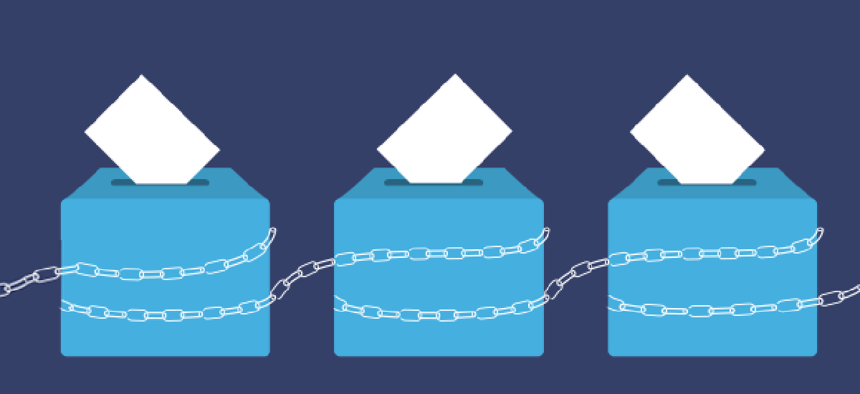Federal funds, expertise helping secure local elections


Connecting state and local government leaders
States have tapped into a federal fund to shore up their election systems, and the Department of Homeland Security is tailoring its threat sharing data to better fit the needs of states, officials told a Senate panel.
Federal agencies are working with state and local voting offices ahead of the upcoming midterm elections, officials told a June 20 Senate panel on election security.
States have been taking advantage of a pool of federal money allocated in the 2018 omnibus spending bill to shore up their election systems, and the Department of Homeland Security is tailoring its threat sharing data to better fit the needs of states, the officials told members of the Senate Rules and Administration Committee.
"As of this week, 38 states have requested $250 million" of the $380 million appropriation, panel Chairman Sen. Roy Blunt (R-Mo.) said, adding that $150 million has already been distributed.
State election commissions were initially skeptical of DHS stepping in to help them secure their voting systems. Since then, DHS has built up cyber assessment and evaluation services for states, established an Election Infrastructure Coordinating Council and helped set up an Election Infrastructure Information Sharing and Analysis Center to share threat information.
State officials testifying at the senate hearing, for the most part, agreed those organizations and resources are working well.
"Minnesota and other states are in a far better position going into this election than that last one" in understanding the cyber threat, said Steve Simon, Minnesota Secretary of State. "We've benefitted from the critical infrastructure designation from DHS in terms of expertise, value-added. It's a good partnership after a rocky start," he said.
DHS Senior Cybersecurity Advisor, Matt Masterson, said he had heard that too. "We're trying to find a balance of how much information" to provide and in what forms it should be available, he said.
State IT managers, he said, should have more technical detail than other election officials. The process of honing data has been a part of establishing data sharing programs for the other critical infrastructure sectors, he said.
Despite the praise, state officials told the panel that a steady stream of funding, not only a one-time appropriation, would be needed to most effectively protect state and local election infrastructure.
"This is expensive," said Simon said of protecting systems.
This article was first posted to FCW, a sibling site to GCN.




